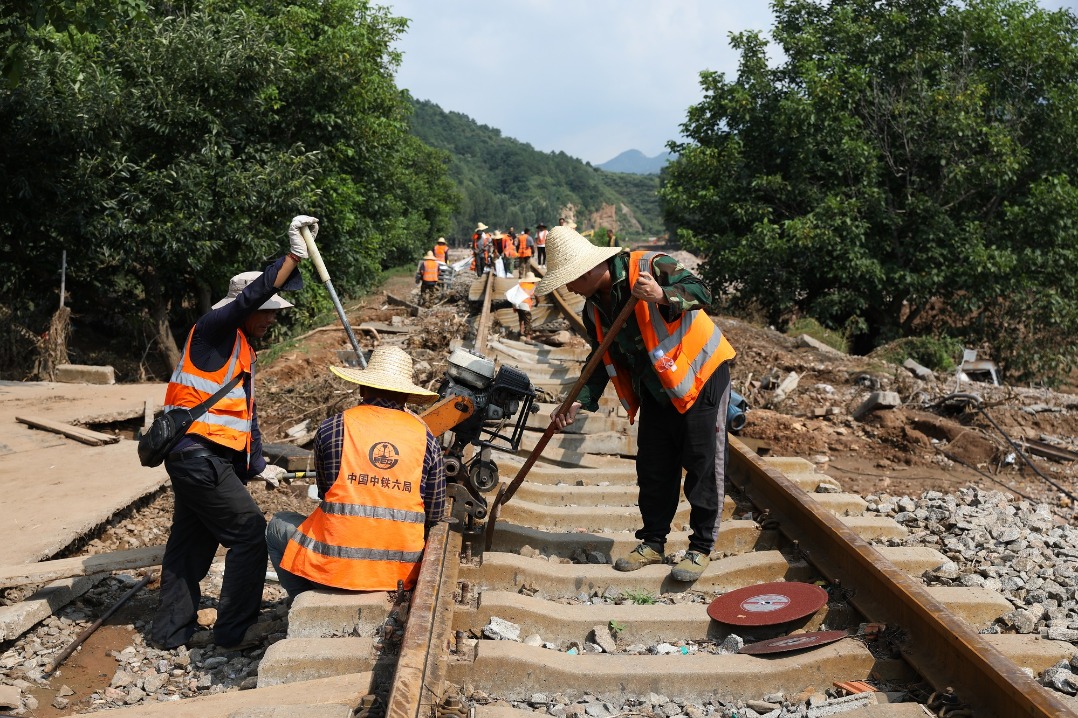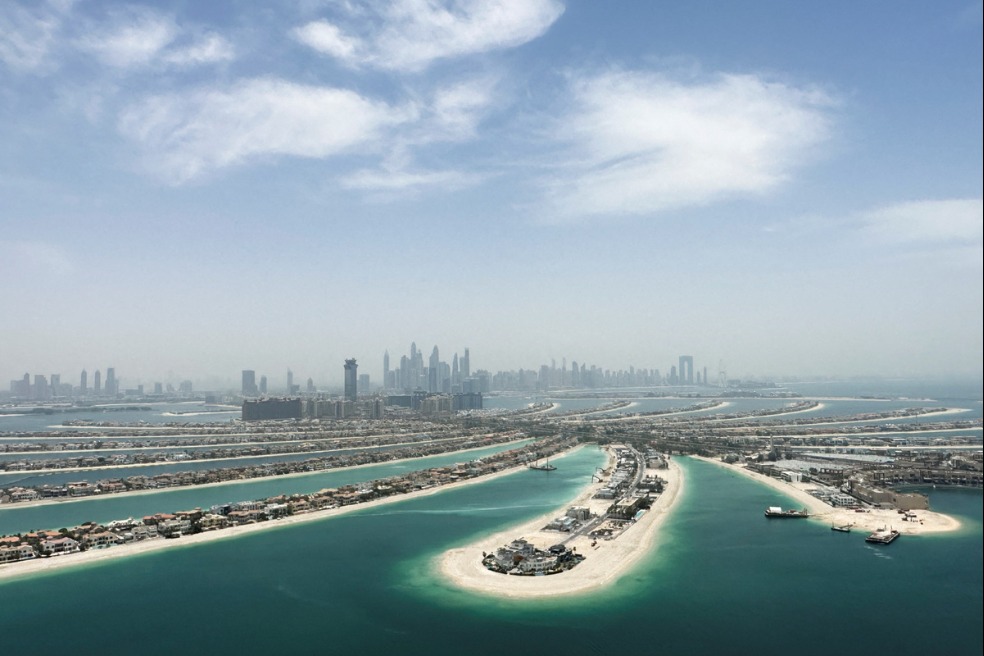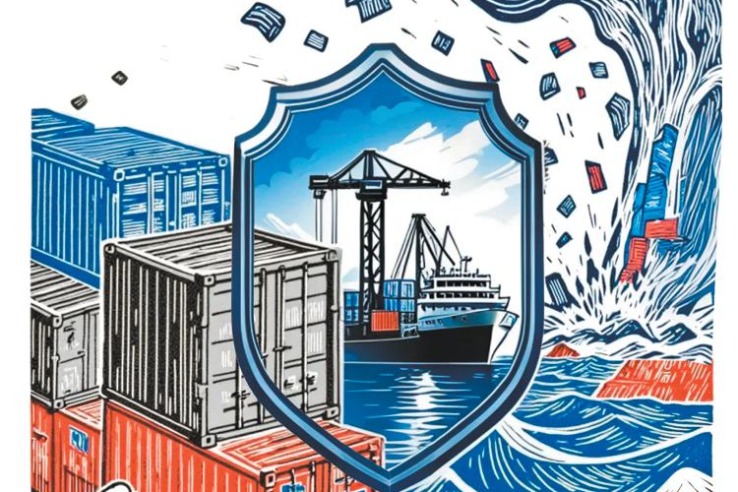Toward a multipolar world order


Indonesia's BRICS membership will enhance its role as a bridge between Asia, Africa and Latin America
Indonesia's formal inclusion as a full member of BRICS signals a strategic shift in its foreign and economic policies. As the world's largest archipelagic nation and Southeast Asia's largest economy, Indonesia stands to gain significantly from BRICS membership, not only in trade and investment but also in diplomatic influence.
At the heart of Indonesia's interest in BRICS lies its ambition to diversify global partnerships, secure alternative financial resources, and strengthen economic and political ties, particularly with China. Given China's dominant role within BRICS, Indonesia's participation would institutionalize economic collaboration between the two nations while simultaneously promoting South-South partnerships.
By joining BRICS, Indonesia will gain a formal channel for improving trade relations, negotiating more favorable export conditions, and tapping into preferential deals within the bloc. Reducing reliance on Western markets can bolster Indonesia's supply chain resilience and widen its customer base among BRICS economies. China, one of the bloc's key members, already plays a pivotal role as Indonesia's largest trading partner.
BRICS membership can also fast-track Indonesia's path to industrial advancement. Indonesia's nickel reserves, among the world's largest, are crucial for electric vehicle battery production. As China dominates the global EV supply chain, deeper cooperation under BRICS will allow Indonesia to move beyond raw material exports and develop its own battery and EV industries. This aligns with Indonesia's ban on nickel ore exports, implemented in 2020, to boost domestic processing. Through joint ventures and technology transfers with China and other BRICS nations, Indonesia can become a major player in the global green technology supply chain.
Infrastructure development is a critical area where BRICS membership could benefit Indonesia. The New Development Bank, BRICS' financial institution, offers an alternative source of funding apart from traditional lenders such as the World Bank and the International Monetary Fund. This aligns well with Indonesia's infrastructure ambitions, including the construction of the new capital, Nusantara, which requires $32 billion in investment. With China's active role in the Belt and Road Initiative, BRICS can complement existing China-led investments in Indonesia's ports, railways and energy projects, further integrating Indonesia into regional and global trade networks.
Additionally, BRICS membership will enable Indonesia to diversify its energy partnerships. As Indonesia transitions toward renewable energy, collaboration with BRICS nations, particularly China which leads in solar panel and wind turbine technology, can facilitate knowledge exchanges and investment in sustainable energy projects.
Indonesia has historically positioned itself as a leader in the Global South, advocating for more equitable economic policies and increased representation for developing nations in global governance. BRICS, which aims to counterbalance Western-dominated financial institutions, offers Indonesia a platform to push for fairer trade policies, financial system reforms and increased economic cooperation among emerging economies.
One key area where Indonesia can contribute is food security and agricultural cooperation. As one of the world's top palm oil producers and a major exporter of agricultural products, Indonesia can work with BRICS to strengthen food supply chains, promote sustainable farming practices, and expand agricultural trade within the bloc. Given the increasing global food security concerns, particularly in the wake of geopolitical conflicts and climate change, BRICS can serve as a crucial platform for ensuring stable food supplies for developing nations.
Maritime cooperation is another strategic dimension of Indonesia's BRICS membership. Indonesia's Global Maritime Fulcrum vision aligns with BRICS' interests in securing critical sea routes, enhancing trade efficiency and improving maritime security. Coordinated efforts between BRICS countries can enhance regional security in the "Indo-Pacific" region, particularly in areas such as the South China Sea and the Malacca Strait, which are crucial to global trade.
Beyond economic benefits, BRICS membership will enhance Indonesia's geopolitical standing. As a leader of the Association of Southeast Asian Nations, Indonesia can serve as a bridge between BRICS and Southeast Asia, fostering regional cooperation in trade, infrastructure and security. With ASEAN's growing importance in global economic and security frameworks, Indonesia's role within BRICS can elevate its influence in shaping policies that impact both regional and global affairs.
Indonesia's membership in BRICS represents more than just economic integration — it is a strategic move to reshape its global influence. By strengthening ties with China and leveraging BRICS as a platform for South-South cooperation, Indonesia can expand its trade and investment opportunities, particularly in high-tech industries and green energy. Additionally, it can secure alternative financial sources through the NDB, reducing reliance on Western-led institutions, and enhance its diplomatic leverage, positioning itself as a key player in both BRICS and ASEAN.
However, Indonesia must ensure that its participation in BRICS remains balanced and aligned with its broader economic and geopolitical objectives. If navigated effectively, BRICS membership can serve as a catalyst for Indonesia's long-term economic transformation, industrial development and global influence. Ultimately, Indonesia's entry into BRICS will not only solidify its position as a leading economy in the Global South but also enhance its role as a bridge between Asia, Africa and Latin America, contributing to a more inclusive and multipolar world order.
The author is an assistant professor at the Faculty of Economics and Business at the Indonesian International Islamic University and a member of the advisory board at the Reform Initiatives, Indonesia. The author contributed this article to China Watch, a think tank powered by China Daily.
The views don't necessarily reflect those of China Daily.
Contact the editor at editor@chinawatch.cn.


































